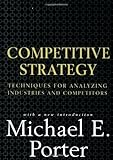This much more sophisticated approach to optimizing value chain management, combined with increasingly global suppliers, has led many companies to incorporate strategic intelligence into techniques for evaluating supplier impact on profitability. Not surprisingly, gaining an understanding of your supplier's business strategy often leads to unexpected revelations as the following case studies illustrate.
Case #1
- The executive management of a global consumer foods company sought to increase their market share and improve pricing by reducing costs associated with their premier condiment line. They believed this could be achieved by: 1) aggressively managing the suppliers of a key vegetable ingredient, and 2) farming the vegetable themselves. What they subsequently found out truly shocked management. Over a century earlier, a major competitor had quietly purchased an agricultural company that had subsequently become the premier seed source for the key vegetable ingredient. Further, all of their suppliers were sourcing their seeds from this competitor, and no other seed source could produce the high yield seeds required to make farming economically viable. Imagine how disconcerting it was when executive management found out they were inadvertently subsidizing their competitor's success due to their dominant position in the seed market! The global consumer foods company used this intelligence to develop a more advantageous strategy to reduce packaging costs.
Case #2
- A high-tech manufacturer required a reliable supply of a rare chemical that cost several thousand dollars per kilogram. The manufacturer guaranteed their supply by establishing long-term contracts with major suppliers. As their contracts were about to expire, the suppliers informed the manufacturer that hey wanted to renegotiate a higher fixed price based on projections of increased demand by the pharmaceuticals and plastic industries. Before committing to their offer, the manufacturing company hired an intelligence consultant to substantiate their suppliers' projections. The consultant confirmed the projections and more importantly, two additional pieces of information that were strategically relevant to the manufacturer's buying decision. First, a major competitor had changed their manufacturing process allowing them to recycle significant amounts of waste and reduce usage of the rare chemical. Secondly, companies in China and the old Soviet states had begun producing the rare chemical in significant quantities which created an unexpected source of future supply. Executive management used this intelligence to refine their suppliers' projections and ultimately revealed that there would be a modest surplus of the chemical for the next three to five years. The result? Armed with this knowledge, executive management renegotiated a long-term, fixed price for the chemical that was 20% less than their previous contract.
Both of these cases demonstrate the benefits of incorporating strategic intelligence into value chain management. By so doing, the two companies in question avoided unnecessary commitment of resources and attendant adverse economic consequences.
Our thank you goes to Den Taylor for providing this article. Den Taylor is Managing Partner of Strategic Insights , a global intelligence consulting firm located in Stamford, CT. (203) 563-0001.
, a global intelligence consulting firm located in Stamford, CT. (203) 563-0001.














